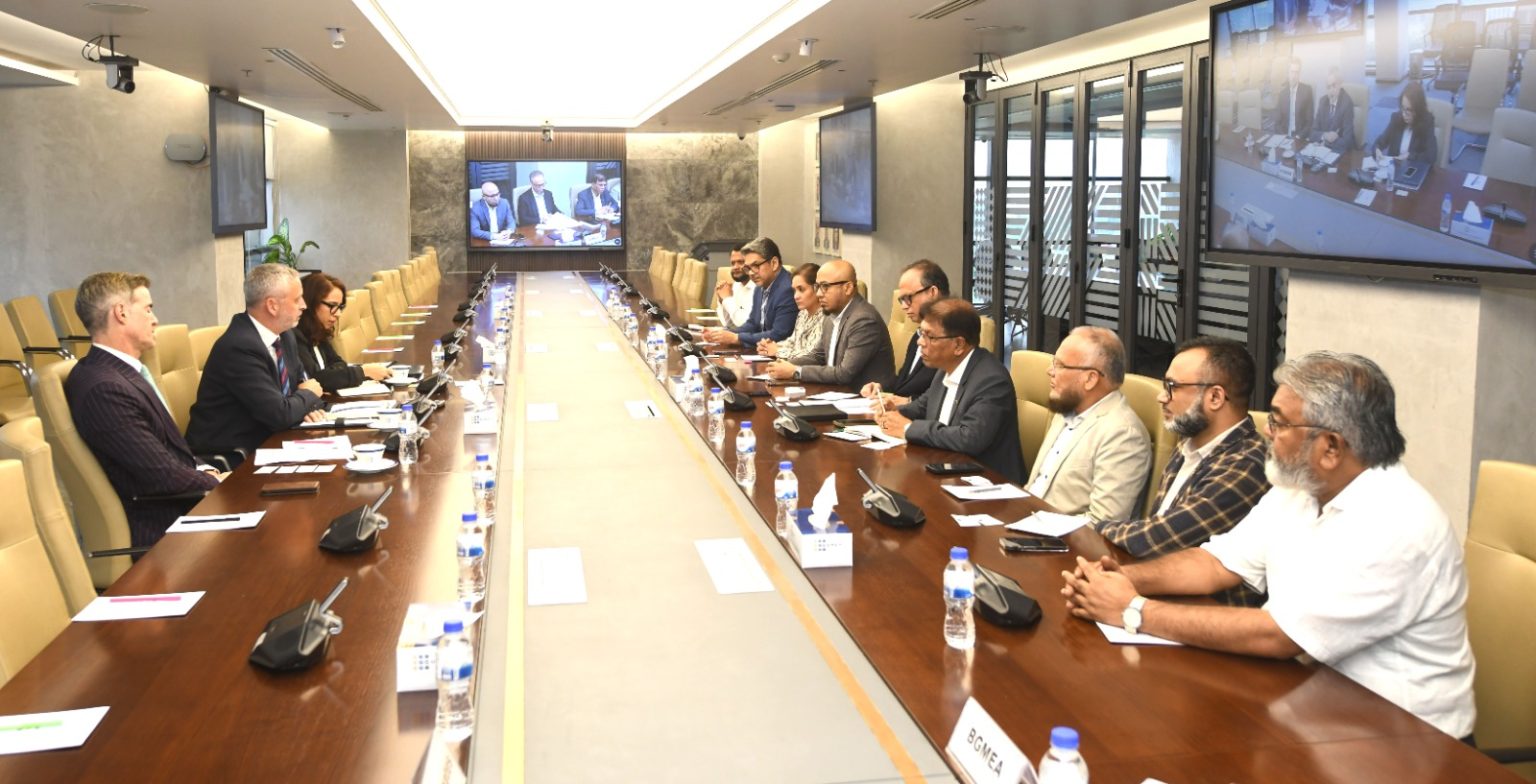Leaders of the Bangladesh Garment Manufacturers and Exporters Association (BGMEA) have urged the European Union (EU) to ease the 37% threshold requirement for GSP+ benefits to ensure Bangladesh’s continued access to the EU market post-LDC graduation in 2026.
This call came during a meeting with a high-level EU delegation on August 13, 2025.
The EU delegation, led by EU Ambassador to Bangladesh Michael Miller, and accompanied by Deputy Head of EU Delegation Bernd Spanier and Programme Manager for Human Capital Development Lole Valentian Lucchese, engaged in discussions with BGMEA President Mahmud Hasan Khan and other senior leaders, according to a press release.
The meeting, held at the BGMEA office, addressed several key issues, including labour law reforms, GSP+ benefits post-LDC, and strengthening EU-Bangladesh relations. The EU representatives emphasized the importance of aligning Bangladesh’s labour laws with international standards, particularly those set by the International Labour Organization (ILO).
In response, BGMEA President Mahmud Hasan Khan highlighted the sector’s ongoing improvements in worker welfare and safety, stating that workers’ rights remain a priority for BGMEA. He discussed initiatives such as the creation of zonal worker welfare centres in Gazipur, Ashulia, Mirpur, and Narayanganj to address wage issues and ensure swift legal resolutions.
BGMEA leaders reiterated the importance of securing GSP+ benefits to maintain Bangladesh’s competitiveness in the EU market. They called for the relaxation of the 37% threshold, which would help ensure Bangladesh’s continued growth in exports to Europe after graduation from the LDC category.
The EU delegation acknowledged Bangladesh’s progress in sustainability and green transformation within the garment sector, with BGMEA expressing optimism that these efforts would facilitate further flexibility in GSP+ terms.
The discussion also covered topics related to due diligence, sustainability, and decarbonization, with BGMEA expressing confidence that the EU’s support would enhance the country’s capacity to meet international business standards.
EU Ambassador Michael Miller noted that after Bangladesh’s LDC graduation, the country would face greater competition and must focus on improving infrastructure, including the efficiency of the Chattogram port, and increasing the use of renewable energy. He reiterated the EU’s commitment to supporting Bangladesh through these transitions.


